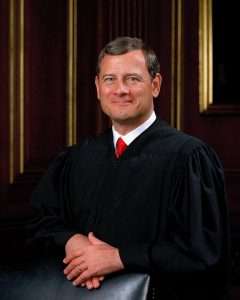The First Amendment is alive and well, which is a reassuring note about the basic legal protections for free speech. Unfortunately, it's not enough. The world is full of countries with written protections for liberty that are frequently honored in the breach because people and politicians don't really believe in them (cough, Canada, cough). The true foundation for free speech in the U.S. has always been a culture that supports unfettered expression, of which the First Amendment is just an extension.
Assassin's Veto, and the Cheers That Followed
But less than two weeks after Charlie Kirk was murdered because an assassin apparently didn't like what he had to say, it's obvious that free speech culture is besieged. That murder is celebrated in some quarters, the U.S. attorney general threatened to crack down on "hate speech," and the head of the Federal Communications Commission (FCC) leaned on ABC to fire a comic who got mouthy about Kirk. That's after years of cancel culture meant to muzzle ideas and behind the scenes government efforts to suppress dissent. The First Amendment still stands, but too many Americans seem to regret its existence.
In justifying the murder of Kirk to his roommate/lover, alleged assassin Tyler Robinson wrote, "I had enough of his hatred. Some hate can't be negotiated out."
We'll be a while parsing the details of Robinson's motives, but they seem founded in Kirk's views about gay and transgender people. The irony is that Kirk, whatever his views, was willing to debate anything. Last week, liberal pundit Van Jones, who sparred online with Kirk, revealed that the conservative activist invited Jones on his show to discuss their differences. Kirk was killed before Jones could respond, though he added, "Please don't give up on open debate and dialogue. Charlie didn't. I won't."
Jones might not have won many friends had he responded in the affirmative. As Rhian Lubin reported for The Independent, "everyone from teachers, university staffers and media personalities, to firefighters, a U.S. Secret Service agent and a Marine is now finding themselves in hot water for reveling in the killing."
"Hearing that Charlie Kirk got shot and died really brightened up my day," commented John Colgan, who was both a public school teacher and a city councilmember in Cornelius, Oregon.
Muzzling the Hateful
Members of the public, unhappy to have their children taught or their communities "protected" by such people, complained to employers—many of whom sent the loudmouths packing. And that's fair enough; nobody has an obligation to waste paychecks on people who offend customers and stain the brand.
But that wasn't enough for U.S. Attorney General Pam Bondi, who has apparently been possessed by the spirit of a censorial Brussels Eurocrat. "There's free speech and then there's hate speech, and there is no place, especially now, especially after what happened to Charlie, in our society," Bondi commented. "We will absolutely target you, go after you, if you are targeting anyone with hate speech."
In recent years, this position has been championed by the illiberal left. University of Michigan law professor Catherine A. MacKinnon argues that "once a defense of the powerless, the First Amendment over the last hundred years has mainly become a weapon of the powerful." New York's Democratic officials passed a constitutionally dubious ban on so-called "hate speech." Now it's a position also taken by the nation's top cop. Republican President Donald Trump speculates that Charlie Kirk might have dropped his free-speech advocacy had he known what was going to happen to him.
Bondi's hostility to free speech is shared by Brendan Carr, the head of the FCC, which regulates broadcast media. After late-night host Jimmy Kimmel made the bizarre claim that Kirk was shot by a Trump supporter, viewers complained, some big network affiliates pulled the plug on his show, and he was apparently fired—but not before the FCC head weighed in.
"These companies can find ways to change conduct and take action, frankly, on Kimmel, or there's going to be additional work for the FCC ahead," Carr told an interviewer.
Turnabout on Government Censorship
Carr was called out for engaging in the sort of jawboning—government strong-arming the private sector to coerce behavior—that conservatives rightly complained about under the Biden administration. Biden officials did it behind the scenes, while Carr—and Trump—openly threatened repercussions for speech they didn't like. And some of their allies lapped it up.
"Sorry, but the FCC was established by FDR to impose public standards on broadcasters and used by JFK to pressure station managers into dropping right-wing radio programs," posted conservative activist Christopher Rufo. "The 'shoe has been on the other foot' for almost a hundred years. Turnabout is fair play."
Rufo is right that the FCC (originally the Federal Radio Commission) was established to bring broadcast media under government control. First, it set out to thwart evolving property rights in the broadcast spectrum that could keep radio stations independent, as documented in Jonathan W. Emord's Freedom, Technology, and the First Amendment (1991). After that, then-President Franklin Delano Roosevelt used the FCC to drive his critics from the airways. Former President John F. Kennedy emulated that tactic (with IRS audits added) in the 1960s.
Trump's use of the FCC to silence voices he doesn't like is turnabout. It also violates his Inauguration Day promise to end the practice of "exerting substantial coercive pressure on third parties, such as social media companies, to moderate, deplatform, or otherwise suppress speech that the Federal Government did not approve." And it ends the pretense that the FCC serves a legitimate purpose. Clearly, it exists now (like much of the government) primarily to serve as a weapon in the hands of whoever holds power to strike at enemies. If that's all the government is, there's no reason to play by the rules at all.
We Need To Revive a Culture of Free Speech
But, as Kirk himself warned, "when people stop talking, really bad stuff starts. When marriages stop talking, divorce happens. When civilizations stop talking, civil war ensues."
We're not there yet. From the left, Van Jones called for more dialogue and less violence. From the right, Sen. Ted Cruz (R–Texas) denounced Carr's threats and warned, "it is unbelievably dangerous for government to put itself in the position of saying we're going to decide what speech we like and what we don't." Bondi walked back her comments after taking a barrage of criticism from across the political spectrum.
But while a majority (59 percent) of Americans still say they support free speech for everybody in a recent poll by Vanderbilt University's Project on Unity and American Democracy and The Future of Free Speech, that majority is countered by sizeable 41 percent who say, "there are times when free speech should be prohibited or certain subjects or speakers prohibited."
That's a lot of Americans with tenuous respect for free speech. And they have an impact. Some, like Kirk's assassin, are willing to turn to violence to silence their opponents. Others attack their enemies through the coercive power of the state. And still more cheer on every attack on the enemy, even if unconstitutional or murderous.
We can and should abolish those organs of the state—like the FCC—that can be used to suppress speech. But how do we get more Americans to embrace debate instead of force? Because, while the First Amendment still stands, it won't be enough if its foundations in the culture continue to erode.
The post America's Free Speech Culture Is Under Attack From Within appeared first on Reason.com.













 Bengali (Bangladesh) ·
Bengali (Bangladesh) ·  English (United States) ·
English (United States) ·